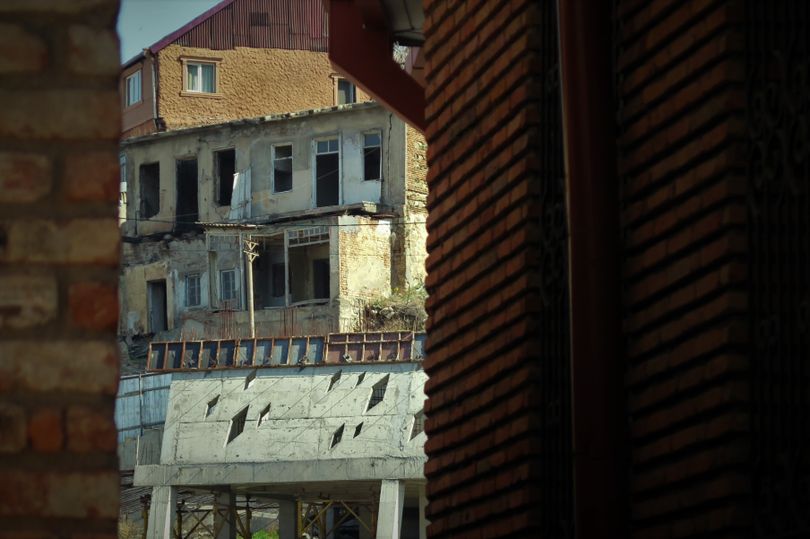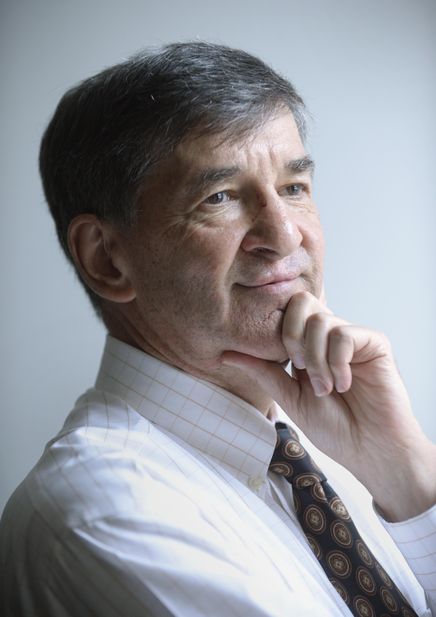Student journalists visiting Georgia

On occasion, I like to turn over this blog space to a guest contributor. Today's special guest is Chad Sokol, a senior at Washington State University and a former reporting intern for The Spokesman-Review.
 Sokol still contributes occasional stories to The Spokesman-Review and will be returning to our newsroom for another internship this summer. He is spending 10 days in the Republic of Georgia, sponsored by the Edward R. Murrow College of Communication's Backpack Journalism Program. He and a fellow student, Kalinda Kindle, are interviewing politicians, NGO workers, winemakers, Orthodox priest, local journalists and families displaced by the 2008 war with Russia. The two journalists are staying in the capital, Tbilisi, and making trips to village across the Georgian countryside.
Sokol still contributes occasional stories to The Spokesman-Review and will be returning to our newsroom for another internship this summer. He is spending 10 days in the Republic of Georgia, sponsored by the Edward R. Murrow College of Communication's Backpack Journalism Program. He and a fellow student, Kalinda Kindle, are interviewing politicians, NGO workers, winemakers, Orthodox priest, local journalists and families displaced by the 2008 war with Russia. The two journalists are staying in the capital, Tbilisi, and making trips to village across the Georgian countryside.
Sokol sent me an excerpt today from the blog he is writing for the college. I've invited him to share a few more excerpts in the coming days. Here's the first one:
On Sunday, our first full day in Georgia, we toured Abanotubani, the “bath district” of Tbilisi known for its natural warm springs. Legend has it that King Vakhtang of Iberia discovered the springs sometime in the fifth or sixth century, when his falcon fell into one of them while hunting a pheasant. Astonished by the abundance of water, he ordered his men to build a new capital in Tbilisi.
Today, Abanotubani is very old and very poor, like most of the city. Our guide, a Georgian journalist named Dachi Grdzelishvili, said the neighborhood is home to several religious groups, including Muslims and Jehovah’s Witnesses. (The country is predominantly Orthodox Christian.) Brick, wood and concrete apartments are crammed beside one another, forming a network of narrow, winding alleyways. Some have fresh coats of paint in bright, whimsical colors; others are cracked and faded. The rich aromas of Georgian cuisine mostly hide the gripping scent of sulfur that rises from the springs.
Dachi showed us his favorite public bath house, a brick structure with low ceilings and a mosaic-tiled dome. Inside, the air was thick. There was a tiled rectangular pool in each of several small rooms, filled to the rim with spring water. Dachi said he visits the place about once a month, more often when he’s under the weather. (The water, he insists, has profound medicinal qualities.)
Then it was time for lunch. At a restaurant near the bath house, Dachi treated us to a massive spread of traditional Georgian dishes: khinkali, khachapuri, barbecued beef and pork, bread, a cheese plate, a cucumber-and-tomato salad. I especially liked the khinkali — fist-sized dumplings filled with spiced meat, each shaped like a cloth pouch with a drawstring cinched tight around the top. The trick to eating them, as Dachi demonstrated, is to bite a small hole in the noodle, tilt back your head and slurp out the savory juices. Only then can the rest be devoured.
Day 1 in Tbilisi was a success.
